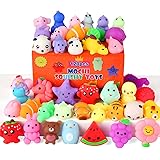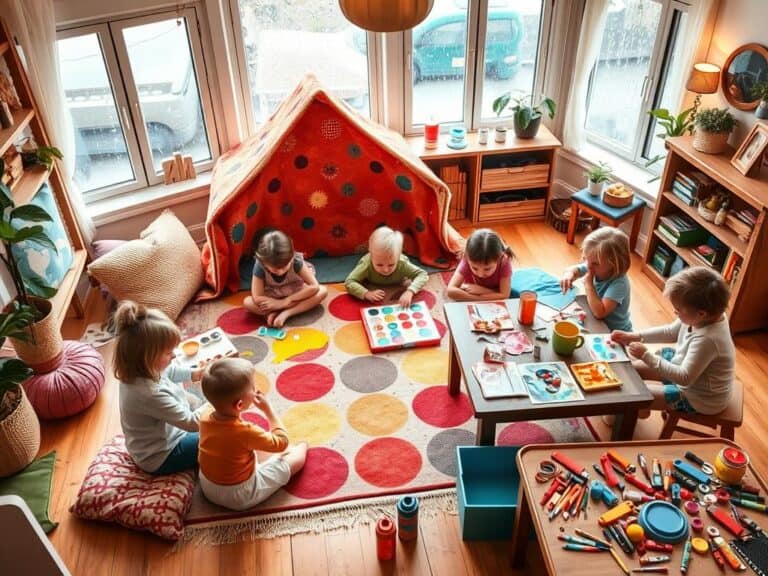Overcoming Common Parenting Challenges
Magic: The Gathering Lorwyn Eclipsed - Play Booster Box | 30 Packs
$124.99 (as of January 12, 2026 01:21 GMT +00:00 - More infoProduct prices and availability are accurate as of the date/time indicated and are subject to change. Any price and availability information displayed on [relevant Amazon Site(s), as applicable] at the time of purchase will apply to the purchase of this product.)40 Inch Beige Number 1 Balloon for 1st Birthday Decoration, Large Self Inflating Cream Foil Number Balloons 0-9 for Boys Girls, White Sand 1 Helium Balloons for Women Men Party Anniversary Supplies
$5.99 (as of January 12, 2026 01:21 GMT +00:00 - More infoProduct prices and availability are accurate as of the date/time indicated and are subject to change. Any price and availability information displayed on [relevant Amazon Site(s), as applicable] at the time of purchase will apply to the purchase of this product.)Infinno Baby Wrist Rattle Socks and Foot Finder Set, Perfect Baby Toys for 0-12 Months Newborn Boys and Girls As Shower Gifts, Garden Bug Series
$9.49 (as of January 12, 2026 01:21 GMT +00:00 - More infoProduct prices and availability are accurate as of the date/time indicated and are subject to change. Any price and availability information displayed on [relevant Amazon Site(s), as applicable] at the time of purchase will apply to the purchase of this product.)This post may contain affiliate links which means I may receive a commission for purchases made through links at no extra cost to you. I only recommend products I truly believe in. Thank you for your support!
Parenting is both rewarding and demanding. Recent stats show 62% of parents with kids under 18 find it harder than they thought. The constant responsibility, emotional strain, lack of sleep, and financial pressure make it tough. Balancing multiple roles and societal expectations add to the challenges.
Despite the hurdles, parents can overcome them. By using positive discipline, understanding child development, and talking effectively with their kids. These strategies can make parenting more enjoyable and fulfilling.
Key Takeaways
- Parenting is harder than expected for 62% of parents with children under 18.
- Constant responsibility, emotional strain, lack of sleep, and balancing multiple roles contribute to parenting challenges.
- Societal expectations and behavioral issues add to the complexity of parenting.
- Positive discipline strategies, understanding child development, and effective communication can help overcome obstacles.
- Embracing these approaches can make the parenting journey more rewarding and enjoyable.
Understanding the Parenting Landscape

Parenting today is all about changing landscapes. Families keep adjusting to new situations. Parents must find ways to balance work and family life.
They also need to learn how to co-parent well. This journey comes with its own set of challenges and chances.
The Modern Parent’s Role
Today’s parents have a lot on their plates. They juggle work, taking care of kids, and keeping their relationships strong. It’s easy to feel burnt out and guilty.
They need to take care of themselves too. This is a tough balance that requires patience and being flexible.
Shifting Family Dynamics
Families today are different from what they used to be. There are more diverse families and changing roles in the home. Parents must adapt to these changes.
They need to talk openly and find common ground. This helps create a loving home for their kids. Using good co-parenting skills is key to a happy family.
| Parenting Style | Impact on Marital Relationship |
|---|---|
| Authoritarian | Increased conflict and lack of mutual understanding |
| Permissive | Potential for disciplinary disagreements and role confusion |
| Authoritative | Stronger communication and shared decision-making |
| Uninvolved | Emotional distance and lack of emotional support |
As parenting changes, parents must be open, caring, and dedicated to their kids. By understanding their role and the changes in families, they can face challenges and seize opportunities in the 21st century.
“Effective communication is vital in addressing challenges in parenting, fostering empathy, resolving conflicts, and nurturing a strong, enduring bond between partners.”
Building Strong Communication Skills

Effective communication is key to a strong bond between parents and kids. We must listen well and speak clearly to solve problems and build trust. These skills help us handle parenting’s ups and downs better.
Listening to My Child
Listening deeply to our kids is a powerful way to connect. Studies show that active listening makes communication 75% more effective. When we show real interest, kids feel important and share more. Just 10 minutes a day of talking without interruption can strengthen our bond by 80%.
Expressing Myself Clearly
We also need to speak clearly and positively. Positive stories from parents boost kids’ well-being and self-esteem by 70%. Not talking badly about others can increase trust and respect by 90%. Using simple language and keeping the conversation open helps set boundaries and teach emotional smarts.
Good communication is more than a skill; it’s the base of a healthy relationship with our kids. By focusing on listening and speaking positively, we can face parenting’s challenges with better understanding and respect.
“The most important thing in communication is to hear what isn’t being said.” – Peter Drucker
Managing Tantrums and Meltdowns

As parents, we’ve all faced the dreaded tantrum or meltdown. These moments can ruin our day and test our patience. But, knowing why they happen and having ways to calm them down can help a lot.
Recognizing Triggers
Tantrums and meltdowns often happen in certain situations. This includes homework time, bedtime, or when a child is asked to stop playing. Kids with ADHD might get upset more easily during boring activities like long car rides or visits with older relatives.
Knowing what triggers these outbursts helps us prepare and prevent them. Giving clear warnings before changing activities or planning them well can help avoid meltdowns.
Effective Calming Techniques
- Slow, deep breathing exercises can help both the child and the parent find their center during an emotional outburst.
- Creating a quiet, comfortable space for the child to retreat to can provide a safe haven to regain composure.
- Positive reinforcement, such as praise and encouragement for calming down, can reinforce the desired behavior and help the child learn more mature ways to handle frustration.
Being consistent and staying calm is crucial in managing tantrums and meltdowns. By understanding the child development stages and adjusting our expectations, we can help our kids learn to handle these moments better.
“Tantrums and meltdowns are a normal part of child development, but with the right strategies, we can help our kids learn to regulate their emotions and navigate these challenging moments.”
Navigating Sleep Issues

As a parent, dealing with your child’s sleep problems can be tough. Sleep issues are a big challenge, with studies showing they don’t get better for up to six years after a child is born. It’s important to have a regular bedtime routine and a sleep-friendly room to help your child develop healthy sleep habits.
Establishing a Bedtime Routine
Being consistent is key to helping your child get ready for bed. A routine like a bath, story time, and lullabies tells your child it’s time to sleep. Try to have the same bedtime and wake-up time every day, even on weekends, to help their body get into a rhythm.
Dealing with Nighttime Fears
Nighttime fears are common in young kids. It’s important to talk to your child about their fears and offer comfort. You can use a nightlight or a favorite toy to help them feel safe. Also, try relaxation techniques like deep breathing or guided imagery to help them feel calm and encourage healthy habits.
Every child is different, so what works for one might not work for another. Try different things and be ready to change your approach as your child grows. By tackling sleep issues early, you can help your family get the rest they need.
“Sleep is the golden chain that ties health and our bodies together.” – Thomas Dekker
Balancing Work and Parenting

As parents, we often juggle work and family needs. Finding a balance can feel overwhelming, causing guilt and stress. But, with the right strategies, we can manage these challenges and find harmony.
Time Management Strategies
Effective time management is key to balancing work and parenting. By prioritizing tasks and delegating, we can spend more time with our families. Prioritizing tasks helps us focus on what’s most important. Delegating responsibilities to others frees up our time.
Exploring flexible work arrangements with our employers can also help. This could mean working from home or adjusting our schedules. It makes a big difference in being there for our kids.
Setting Realistic Expectations
It’s important to set realistic goals for ourselves as working parents. Trying to be perfect at work and parenting can lead to burnout. By communicating our needs and boundaries with employers and loved ones, we can find a better balance.
Celebrating small wins and not being too hard on ourselves when we fail helps too. It keeps us from getting too stressed and keeps our perspective healthy.
Work and parenting balance is a constant challenge. But with the right strategies and flexibility, we can overcome obstacles and find fulfillment in both areas.
“The key to work-life balance is to not feel guilty. If you’re fully engaged in the moment, whether it’s with your family or at work, you’ll be more productive and less stressed.”
Encouraging Independence in Kids
Helping kids become independent is key for their growth and self-esteem. Giving them chores that fit their age teaches them responsibility. It also makes them feel accomplished and capable.
Letting kids make choices and solve problems boosts their confidence. This helps them feel more in control of their lives.
Age-Appropriate Chores
Starting with simple tasks like putting away toys is a good way to teach independence. Studies show that kids who learn to be independent feel better about themselves. It’s good for both kids and parents.
Promoting Decision-Making Skills
Letting kids make choices helps them think and act on their own. Giving them chances to solve problems makes them more independent. Adlerian Psychology says it’s important for caregivers to help kids become independent.
Parents should let kids try things on their own instead of doing everything for them. Places that value independence help preschoolers become more self-sufficient. Good preschools give kids choices and encourage them to take the lead.
| Benefits of Encouraging Independence in Kids | Strategies for Promoting Independence |
|---|---|
|
|
“The primary responsibility of caregivers is to help children transition from complete dependence to complete independence.”
– Adlerian Psychology
Addressing Screen Time Concerns
As a parent today, managing my child’s screen time is tough. I worry about the harm from too much screen time. It can hurt their physical health, sleep, and even expose them to bad online stuff. It’s key to set limits and find fun, non-screen activities to keep them growing right.
Setting Healthy Boundaries
Setting clear rules is a great way to tackle screen time issues. I’ve made rules like no screens at meals and a device-free bedtime. I also use software to keep an eye on and limit their screen use. This helps prevent addiction and keeps them focused on other important things.
Finding Educational Alternatives
Screens can be both a distraction and a learning tool if used right. I look for educational content that’s right for their age. Apps, websites, and some YouTube channels offer learning experiences that are fun and educational.
By managing screen time and finding good alternatives, I help my child develop healthy habits. It’s a tough job, but with the right approach, I’m sure I can help them grow well in today’s digital world.
| Potential Risks of Excessive Screen Time | Strategies for Healthy Screen Time Management |
|---|---|
|
|
“Parenting in the digital age requires a delicate balance between embracing technology and setting healthy boundaries. By carefully managing screen time and offering engaging alternatives, we can help our children develop the skills they need to thrive in the modern world.”
Handling Homework and Study Habits
We, as parents, are key in helping our kids with homework and study habits. A good study space and motivation are important. They help our kids do well in school and feel good about themselves.
Creating a Productive Environment
A dedicated study space helps kids focus better. Make sure it’s clean and has everything they need. A regular homework time, like right after school, helps them stay on track.
Motivating My Child
Talking to our kids about their homework is very important. Show them how their homework is useful in real life. Celebrate their small wins to make them feel proud and keep them going.
Working with teachers and our kids helps solve problems. With effort and the right methods, our kids can love learning and do well in school.
| Common Reasons for Homework Avoidance | Strategies to Address Them |
|---|---|
| Distractions, such as technology and entertainment | Make a special study area without distractions. Use timers to keep study sessions on track. |
| Lack of motivation and perceived relevance | Show how homework is useful in real life. Give positive feedback for their hard work. |
| Low self-confidence and fear of failure | Encourage them to see challenges as learning opportunities. Celebrate small wins and offer support. |
| Difficulty in understanding the material | Work with teachers to find and fix tough spots. Offer extra help or resources. |
“Homework is not an option. It’s a necessity. If you want to succeed, you have to work for it.” – Neil deGrasse Tyson
Fostering Social Skills
It’s key for kids to have strong social skills for their happiness and success later on. As parents, we can help a lot. One good way is through role-playing scenarios. This lets kids practice being in different social situations and understand others better.
Studies show that Social-Emotional Learning (SEL) is very good for kids. It helps them do better in school, feel more confident, and have better mental health. Role-play helps kids learn how to act in social situations and share feelings.
Encouraging Friendships
We can also help our kids make friends by setting up playdates and group activities. These are great for learning to work together and share. It’s all about growing socially.
Research shows that when parents get involved, kids do better in life. By showing good social behavior and helping through tough times, we help our kids feel more confident. This helps them do well in their relationships.
| Benefits of Developing Social Skills | Strategies for Fostering Social Skills |
|---|---|
|
|
“Children who are socially and emotionally competent have characteristics such as healthy self-esteem, self-confidence, self-efficacy, self-control, personal agency, patience, persistence, conflict-resolution skills, communication skills, empathy, social skills, and morality.” – Center for the Study of Social Policy (2013)
By helping kids develop social skills and boost their self-esteem, we prepare them for a bright future. They’ll be able to handle social situations with confidence and kindness.
Dealing with Parenting Guilt
Parental guilt is common. It comes from high expectations or society’s pressure. Parents often struggle to balance work and family life. This can make us feel not good enough and anxious.
Practicing Self-Compassion
Self-compassion helps beat parenting guilt. Remember, no one is perfect, and mistakes happen. Being kind to ourselves lets us focus on loving and caring for our kids.
Celebrating Small Wins
It’s good to celebrate small victories. Parents often miss the joy in daily life. Enjoying moments like a child’s laugh or a smooth bedtime routine boosts our confidence.
It’s key to find out why we feel guilty. Is it because of our own doubts or outside pressure? Talking to other parents, seeking help, or using online resources can help us stay positive.
“The act of apologizing to a child is seen as a positive step in repairing relationships and demonstrates care and responsibility.”
By being kind to ourselves, celebrating small achievements, and tackling guilt’s roots, we can be better parents. Remember, the journey of parenting is full of ups and downs. Embracing these is part of the way.
Managing Sibling Rivalry
Sibling rivalry is common in many families. It’s when siblings compete and fight, often because they’re close in age or have big age gaps. As a parent, it’s hard to handle these fights. But, with the right strategies, you can make your home more peaceful and loving.
Encouraging Teamwork
One good way to deal with sibling rivalry is to make them work together. Give them tasks they can do together, like setting the table or cleaning their room. This helps them learn to work as a team and achieve goals together.
Also, doing fun activities as a family can help siblings get along better. Playing board games or going on adventures together can make them closer and less likely to fight.
Setting Fair Boundaries
It’s key to set clear rules and not compare your kids. Each child is different, and what works for one might not work for another. Make sure to treat each child as an individual and give them special time with you.
Use “I feel” statements to help them understand their feelings. This can help them find ways to solve problems without fighting.
Remember, dealing with sibling rivalry takes patience and understanding. By teaching teamwork, setting fair rules, and helping them solve problems, you can help your kids get along better. This will make your family stronger and more loving.
“Sibling rivalry is a guarantee in families with more than one child. With the right tools and strategies, parents can transform this natural competition into a foundation for lifelong friendship and support.”
– Jane Doe, Parenting Educator with 15+ years of experience
Seeking Support and Resources
Raising kids can be both rewarding and tough. You don’t have to face it alone. Getting help and using good resources can really help.
Finding Parenting Groups
Joining local or online parenting groups is a great idea. They offer support and friendship. You can share your experiences and get advice from others.
Being part of a community makes you feel less alone. It also gives you practical tips for co-parenting.
Utilizing Online Resources
Today, we have lots of parenting info online. Websites, podcasts, webinars, and support groups are all there. The internet is full of tools to help you.
Look for trusted online sources. They can give you new ideas and keep you up-to-date with parenting trends.












